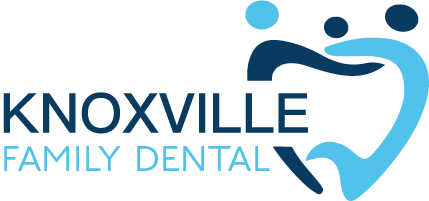
30 Oct How to Make the Most of Your Dental Benefits in Knoxville, Tennessee
As the year winds down, it’s becoming time to think about the funds you have left in your FSA account. Unlike HSAs, these funds don’t roll over into next year. That’s why it’s important that you use the money while you can on approved medical treatments so you don’t lose them forever.
One of the best things you can do with any leftover funds is to put it toward your oral health. FSAs and HSAs both cover many of the same treatments and procedures, as well as not covering certain ones. In some cases, procedures not normally falling under FSA or HSA coverage can be approved with the right documentation.
We’ll look at:
- FSA and HSA benefits in Knoxville, TN
- What FSAs and HSAs don’t cover
- Understanding medical savings accounts
Your FSA or HSA account is a great benefit to your overall health. By putting some of those funds toward your oral health, you’ll be keeping yourself protected into next year and for years to come.
FSA and HSA Benefits in Knoxville, TN
One of the great benefits of FSAs and HSAs is that they cover many of the treatments and procedures that you may need to maintain your oral health. This includes preventative care, X-rays, and oral surgery.
There are even some surprising dental treatments that can be covered by your FSA or HSA. For instance, veneers may be approved if you have a letter of medical necessity (LMC) from your dentist showing that it’s not for cosmetic purposes.
Other treatments and procedures covered by FSAs and HSAs include:
- Fillings
- Sealants
- Bonding
- Extractions
- Dentures
- Crowns
- Preventative and diagnostic services
Your FSA and HSA plan can also cover treating serious conditions such as gingivitis, gum recession, and temporomandibular joint (TMJ) disorders.
There can be some variation when it comes to FSA plans. If you’re not sure if something is covered or not, make sure to talk to your HR department or an FSA representative so you know what your policy does and does not cover.
What FSAs and HSAs Don’t Cover
The main thing your FSA and HSA funds can’t go towards is cosmetic dental procedures. As the IRS puts it:
Generally, you can’t include in medical expenses the amount you pay for cosmetic surgery. This includes any procedure that is directed at improving the patient’s appearance and doesn’t meaningfully promote the proper function of the body or prevent or treat illness or disease.
– Internal Revenue Service
But as we mentioned earlier, some cosmetic procedures may be covered if you have an LCM showing that it isn’t for cosmetic purposes. This could be from a deformity due to or resulting from:
- An injury
- A disfiguring disease
- A hereditary defect
So for example, teeth whitening is never covered under FSAs or HSAs since it’s purely cosmetic in nature. On the other hand, veneers and orthodontics may be approved if they address a medical issue, and you have an LCM.
Understanding Medical Savings Accounts
Medical savings accounts are special accounts that are tax-free as long as they’re being used to pay approved medical expenses. They come in two different types:
- FSA – flexible spending account
- HSA – health savings account
While both can be beneficial, one may suit your needs better than the other. Let’s take a closer look at FSAs and HSAs so you can see which is best for you.
FSAs
FSAs are provided by your employer and usually funded by payroll deductions before taxes. You’re not required to have health insurance to have an FSA, but the money from your FSA can be used in combination with whatever kind of health insurance coverage you have. Funds are taken from each paycheck and can be used once the first contribution has been made.
Money from your FSA can go towards medical expenses such as:
- Deductibles
- Copays
- Coinsurance
FSAs also have the benefit of being able to be used for medical expenses not covered by your insurer, such as LASIK surgery.
One drawback to FSAs is that the money you don’t spend isn’t carried over into the next year. Instead, any money not used by the end of the year is lost. Depending on your plan and employer, you may have an extended grace period until March 15 of the following year to use the money you have saved. You can save up to $2,750 with your FSA.
HSAs
Unlike FSAs, HSAs can only be used in combination with a high deductible health plan (HDHP). Your HSA doesn’t have to be connected to your HDHP and you can transfer funds from one HSA to another. You can only make contributions to your HSA when covered by HDHP but you can access this pre-tax money even if you’re no longer covered by your HDHP.
HSAs can be funded in three different ways. By:
- Payroll deductions
- Contributions from your employer
- By the individual
HSAs have a higher contribution limit at $3,550 for individuals and $7,100 for families as of 2020. You can keep this money even if you lose your job and your HSA was funded by your employer. Unlike FSAs, any money not spent from your HSA for medical expenses stays in the account the following year. Funds going toward approved expenses aren’t taxed.
Funds from an HSA will be taxed and penalized by 20% if used for any non-approved reasons before the age of 65. After the age of 65, you won’t be penalized but you will have to pay income taxes on it.
If you have an FSA then now is the perfect time to consider using the money that you have saved. It won’t carry over into next year so whatever you have saved up will be lost. Just make sure that any procedures or treatments you need are covered by your FSA, or your HSA if you have one. This will ensure that you get the dental work you need without any worries.
Dental Insurance
Be sure not to forget to take advantage of your regular dental insurance. The majority of regular dental insurance plans cover two cleanings a year and you want to make sure that you’re taking advantage of those benefits. This will also help free up funds from your FSA or HSA to go towards other dental expenses.
Knoxville Family Dental has two locations in Knoxville to better serve you. You can call Knoxville West at (865) 691-1121 or you can schedule an appointment online. To make an appointment with Knoxville East, call (865) 544-1711 or make an appointment online.

Sorry, the comment form is closed at this time.